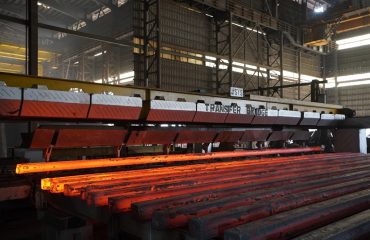The steel industry is a cornerstone of global infrastructure, demanding skilled professionals with proven expertise. Gaining a relevant certification can significantly boost your career prospects, enhance your credibility, and unlock new opportunities. This comprehensive guide will navigate you through the intricacies of steel industry certifications, helping you understand the various types available, their benefits, and the application process.
Understanding the Landscape of Steel Industry Certifications
The steel industry encompasses diverse specializations, from manufacturing and processing to quality control and engineering. Certifications reflect this diversity, offering specialized training and recognition in specific areas. These certifications are often offered by professional organizations, government bodies, and reputable training institutions. Some common areas covered include:
- Manufacturing Processes: Certifications covering specific steelmaking processes like basic oxygen furnace (BOF) operation, electric arc furnace (EAF) technology, and continuous casting.
- Quality Control and Assurance: Certifications focusing on quality management systems (ISO 9001), material testing, and non-destructive testing (NDT) techniques.
- Welding and Fabrication: Certifications validating proficiency in various welding processes, including arc welding, gas metal arc welding (GMAW), and gas tungsten arc welding (GTAW).
- Engineering and Design: Certifications specializing in structural steel design, metallurgy, and material science.
- Safety and Environmental Compliance: Certifications demonstrating knowledge of safety regulations, environmental protection measures, and sustainable practices within the steel industry.
The specific certifications available will vary depending on your country and the area of specialization you are pursuing. Researching relevant professional organizations and industry bodies is crucial in identifying the most suitable certifications for your career goals.
Benefits of Obtaining Steel Industry Certifications
The advantages of obtaining a steel industry certification extend beyond simply adding a line to your resume. They provide tangible benefits that can significantly enhance your career trajectory:
- Enhanced Credibility and Recognition: Certifications demonstrate your commitment to professional development and your expertise in a specific area, building trust and credibility with employers and clients.
- Improved Earning Potential: Certified professionals often command higher salaries and are more competitive in the job market.
- Increased Job Opportunities: Certifications open doors to new career paths and opportunities, potentially leading to promotions and leadership roles.
- Enhanced Employability: In a competitive industry, certifications act as a differentiator, making you a more attractive candidate for employers.
- Professional Networking: Obtaining certifications often involves joining professional organizations, providing opportunities for networking and collaboration with other industry professionals.
The return on investment (ROI) of pursuing a certification is often substantial, considering the long-term career benefits it provides.
The Application Process for Steel Industry Certifications
The application process for steel industry certifications varies depending on the specific certification and issuing body. However, some common steps are generally involved:
- Research and Selection: Identify the relevant certification that aligns with your career goals and experience level.
- Eligibility Requirements: Check the eligibility criteria, including education, experience, and any prerequisites.
- Application Submission: Complete the application form and submit all required documentation, such as transcripts, resumes, and letters of recommendation.
- Examination or Assessment: Most certifications require passing an examination or completing a practical assessment to demonstrate competency.
- Certification Award: Upon successful completion of the requirements, you will be awarded the certification, which is often accompanied by a certificate and credentials.
- Maintenance and Renewal: Some certifications require ongoing professional development or renewal to maintain validity.
Thoroughly reviewing the application guidelines and contacting the certifying body directly if you have any questions is crucial to ensure a smooth application process.
Maintaining Your Steel Industry Certification
Once you’ve earned your certification, maintaining its validity is essential. This often involves continuing professional development (CPD) activities to stay updated on industry advancements and best practices. These activities might include:
- Attending industry conferences and workshops:
- Participating in professional development courses:
- Reading industry publications and journals:
- Engaging in self-directed learning:
- Completing recertification examinations or assessments (as required):
Staying actively involved in your profession and demonstrating a commitment to ongoing learning will not only maintain your certification but also enhance your expertise and career prospects.
Choosing the Right Certification for Your Career Path
With a wide range of certifications available, selecting the right one requires careful consideration of your career goals, experience level, and specific area of interest. Factors to consider include:
- Your current skillset and experience:
- Your career aspirations and future goals:
- The reputation and recognition of the certifying body:
- The cost and time commitment involved:
- The relevance of the certification to your industry and job market:
Networking with experienced professionals in the steel industry and researching various certifications can provide valuable insights and guidance in making an informed decision.
By understanding the landscape of steel industry certifications, their benefits, and the application process, you can strategically enhance your career prospects and establish yourself as a highly skilled and sought-after professional. Invest in your future – invest in a certification.




